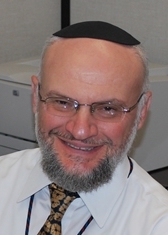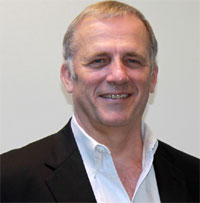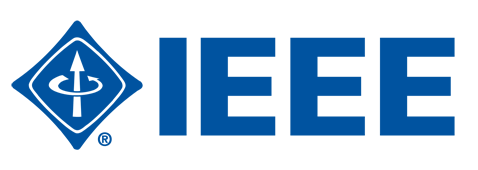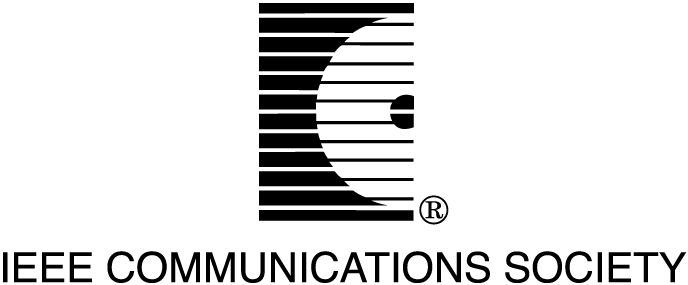Keynotes
Keynote by Alexander Kott, Chief, Network Sciences Division, US ARL

Tuesday, March 6th, 2012, 7:45 am-9:00 am
"Inseparable Influences: How Interactions of Dissimilar Networks Drive Distributed Cognition"
Much (and possibly all) human decision making occurs in a distributed fashion. Human (and recently also artificial) agents form their situational awareness and arrive to decisions through interactions within a social or organizational group. An important way to theorize about, and model such decision making is to view it as a network phenomenon. In my talk I will argue for greater emphasis on recognizing that several highly dissimilar genres of networks are actually involved in this process: besides the obvious network of decision-making agents (a social-cognitive network) there is also a communication network and an information network. What happens in the social-cognitive network is very much influenced by the structure and dynamics of the communication network and information network. I illustrate the importance of these inter-genre interactions using examples from the military domain. Many military-relevant complex phenomena involve interactions of dissimilar genres of networks, yet theories, models and methods to predict and influence the interactive behaviors are largely unknown. I will discuss the related needs for practical tools in important applications, and the challenges in researching approaches to achieving such capabilities.
Alexander Kott, PhD
Dr. Kott serves as the Chief, Network Science Division, Army Research Laboratory headquartered in Adelphi MD. In this position, he is responsible for fundamental research and applied development in performance and security of both tactical mobile and strategic networks. He oversees projects in network performance and robustness, intrusion detection, and network emulation. He also serves as the Manager of the Network Science Collaborative Technology Alliance, a program that brings together government, industry and academic institutions to perform foundational, cross-cutting research for a fundamental understanding of interactions, interdependencies, and common underlying science among social/cognitive, information, and communications networks. Prediction and control of the composite behavior of these complex interacting networks will ultimately enhance effectiveness in network-enabled warfare and counterinsurgency.
Between 2003-2008 Dr. Kott served as a Defense Advanced Research Programs Agency (DARPA) Program Manager responsible for a number of large-scale advanced technology research programs. His earlier positions included Technical Director with BBN Technologies, Cambridge, MA; Director of R&D at Logica Carnegie Group, Pittsburgh, PA; and IT Research Department Manager at AlliedSignal, Inc., Morristown, NJ. Dr Kott received the Secretary of Defense Exceptional Public Service Award and accompanying Exceptional Public Service Medal, in October 2008.
He earned his PhD from the University of Pittsburgh, Pittsburgh PA in 1989; published over 70 technical papers; and co-authored, and edited six technical books. Dr. Kott and his family live in Silver Spring, Maryland.
Keynote by Pat Hayes, Senior Research Scientist Florida Institute for Human and Machine Cognition

Wednesday, March 7th, 2012, 7:45 am-9:00 am
"Situations, Contexts, States of Affairs, and the Limits of Formalization"
The idea has been lurking around ever since people first tried to analyze language: meaning depends on context. Things change; circumstances alter; points of view differ. What is true here might not be true over there, or said to a different person, in a different culture. And therefore, simplistic notions of 'truth' must be made somehow more nuanced or multifaceted, in order adequately account of all of this. And yet, virtually all formalized semantic theories do still rest on a robust, straightforward, simple notion of truth, which is a foundational cornerstone for much of modern formal logic.
This talk will review this, um, situation, and try to explain the reasons for it. Along the way we will explain recent work on a self-descriptive logic called IKL which was developed as a lingua franca for a variety of apparently incompatible context- and tense-relative formalisms. The most important conclusion is that contexts (etc.) are best seen as a central topic for logics to describe, rather than as altering the basic nature of the logic itself. The extensions required are in ways of naming things, rather than in the logical reasoning that is made using the names. This ontological approach to situational truth provides richer, more expressive and more useful formalizations, but at a cost of making them less like natural language. As we will show, the ontological approach can also be used in a variety of other areas, including the logic of business rules.
Pat Hayes
Pat Hayes has a BA in mathematics from Cambridge University and a PhD in Artificial Intelligence from Edinburgh. He has been a professor of computer science at the University of Essex and philosophy at the University of Illinois, and the Luce Professor of cognitive science at the University of Rochester. He has been a visiting scholar at Universite de Geneve and the Center for Advanced Study in the Behavioral Studies at Stanford, and has directed applied AI research at Xerox-PARC, SRI and Schlumberger, Inc.. At various times, Pat has been secretary of AISB, chairman and trustee of IJCAI, associate editor of Artificial Intelligence, a governor of the Cognitive Science Society and president of AAAI.
Pat's research interests include knowledge representation and automatic reasoning, especially the representation of space and time; the semantic web; ontology design; image description and the philosophical foundations of AI and computer science. During the past decade Pat has been active in the Semantic Web initiative, largely as an invited member of the W3C Working Groups responsible for the RDF, OWL and SPARQL standards. Pat is a member of the Web Science Trust and of OASIS, where he works on the development of ontology standards.
In his spare time, Pat restores antique mechanical clocks and remodels old houses. He is also a practicing artist, with works exhibited in local competitions and international collections. Pat is a charter Fellow of AAAI and of the Cognitive Science Society, and has professional competence in domestic plumbing, carpentry and electrical work.
Keynote by Joe Mitola, Distinguished Professor, School of Engineering and Science, School of Systems and Enterprises, Stevens Institute of Technology, “Father of the Cognitive Radio”

Thursday, March 8th, 2012, 7:45 am-9:00 am
A Vision for Cognitive Radio in Situation Management
Common to the systems pf interest to the CogSIMA community is the need to adequately perceive, reflect and act according to the situational changes happening both in the surrounding world and within the systems themselves. Cognitive radio (CR) was founded as a cognitive situation management system for radio. In its first decade CR has generated technologies for network-based RF situation awareness (SA) and response called dynamic spectrum access (DSA). Leveraging RF sensing technology developed for DSA, RF could contribute significantly to human-machine situation management, especially in stressful situations such as large scale first responder use cases where the presence of RF transmitters may indicate the presence of victims (cell phone under rubble), bystanders with applicable skills, and a diversity of first responder capabilities in RF, computing, equipment, and skills. RFSA could assist future first responders in overcoming physical impediments to awareness such as smoke and rubble, could assist in the discovery of paths for access to survivors, could assist in determining the availability of specialized equipment, and could provide and real-time planning and coordination needed to get the right equipment to the right survivors optimally, which is an NP-Hard problem. Other significant use cases include elder car and agriculture. Ultimately, the user should become the 8th layer of the protocol stack via rich computational models of physical and information capabilities along with robots and the Internet of Things. This talk shares a vision of the social benefits of such evolution of a system of systems of CogSIMA, promoting interdisciplinary dialog among cognitive radio, mission planning, electronics standards, network management, and RF location awareness communities.
Joe Mitola
Recognized globally as the father of software radio and cognitive radio, Dr. Mitola is Distinguished Professor in the School of Engineering and Science and the School of Systems and Enterprises, Stevens Institute of Technology, Hoboken, NJ, where his research interests focus on trustable, teachable cognitive systems including socio-technical systems, nano-enabled medical systems, multifunction trustable agile RF systems, and mathematically secure computing and communications. Previously, he was the Chief Scientist of the U.S. Department of Defense (DoD) Federally Funded Research and Development Center for The MITRE Corporation; Joint Special Assistant to the Director of the US Defense Advanced Research Projects Agency (DARPA) and to the Deputy Director of the US National Security Agency (NSA) for trustable cognitive systems; DARPA Program Manager; Technical Advisor to the Executive Office of the President of the United States; and Technical Director of Modeling and Simulation for DoD. He has also held positions of technical leadership with E-Systems, Harris Corporation, Advanced Decision Systems, and ITT Corporation. Dr. Mitola began his career as an engineering student assistant with DoD in 1967. His graduate text books include Software Radio Architecture (Wiley 2000) and Cognitive Radio Architecture (Wiley, 2006). Dr. Mitola received the B.S. degree in electrical engineering from Northeastern University, Boston, MA, in 1971, the M.S.E. degree from The Johns Hopkins University, Baltimore, MD, in 1974, and the Licentiate (1999) and doctorate degrees in teleinformatics from KTH, The Royal Institute of Technology, Stockholm, Sweden.


